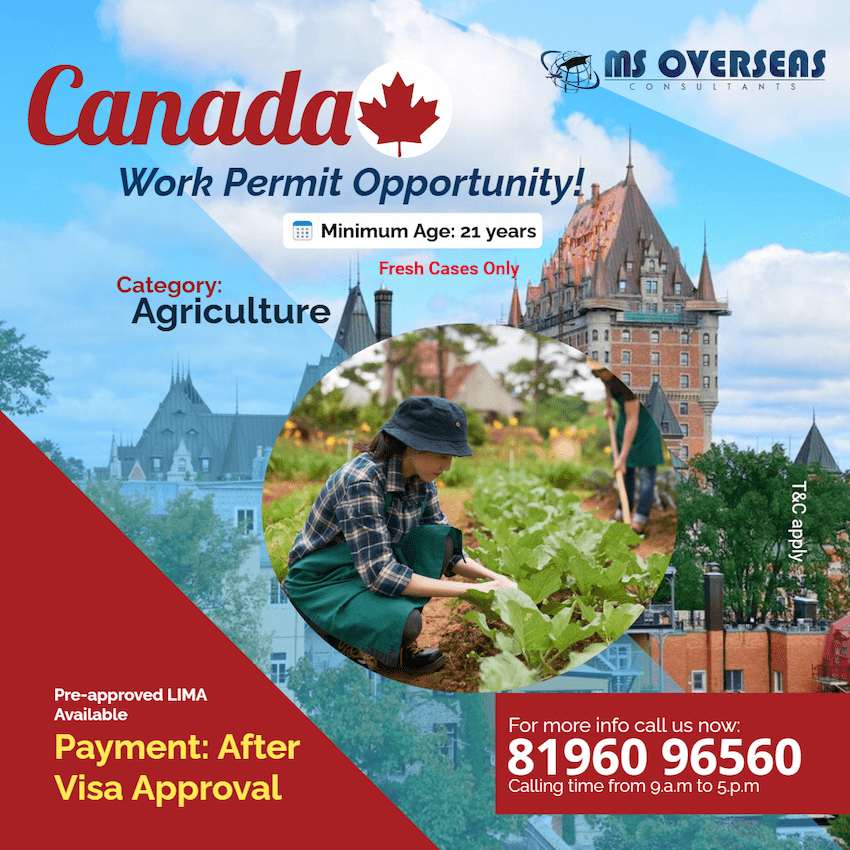Are you planning a trip to Canada and wondering how long you can stay as a visitor? Whether you’re excited about exploring the bustling streets of Toronto, the breathtaking landscapes of Banff National Park, or the charming historical sites of Quebec City, it’s essential to understand the rules about your stay duration. This guide will cover everything you need to know about how long you can stay in Canada as a visitor, ensuring you have a smooth and enjoyable experience.
General Rule for Visitors
Most visitors to Canada are permitted to stay for up to six months. However, the exact length of your stay is determined by the Canada Border Services Agency (CBSA) officer when you enter the country. Here’s how the process typically unfolds:

Arriving in Canada
When you arrive in Canada, you’ll meet a CBSA officer who will check your travel documents and ask you some questions about your visit. Based on this interaction, the officer will decide how long you are allowed to stay in Canada.
Passport Stamp
The CBSA officer might stamp your passport and write down the date you need to leave by. This date is usually six months from your entry date, but it could be shorter or longer depending on your situation.
No Stamp in Your Passport?
If you don’t get a stamp in your passport, it usually means you can stay for six months from the day you arrived in Canada or until your passport expires, whichever comes first. If you’re uncertain, always ask the officer to clarify before you leave the immigration area.
Asking for a Stamp
Sometimes, you might want a stamp in your passport for your records. If you arrive at an airport with primary inspection kiosks, you can ask for a stamp from a CBSA officer after using the kiosk.
Extending Your Stay in Canada
If you find yourself wanting to stay longer than the time given by the CBSA officer, you can apply for an extension. Here’s a step-by-step guide on how to do it:

Step 1: Preparing Your Extension Application
You should start your extension application at least 30 days before your authorized stay expires. To apply, you’ll need:
- To complete the application form IMM 5708.
- Your passport details.
- Proof of financial support for your extended stay.
- A detailed explanation of why you wish to extend your stay.
Step 2: Submitting Your Application
Submit your application online via the Immigration, Refugees and Citizenship Canada (IRCC) website. Ensure all required documents are uploaded and the application fee is paid.
Step 3: Awaiting a Decision
After submitting your application, you’ll need to wait for a decision from IRCC. Processing times can vary, so it’s wise to apply early.
Step 4: Implied Status
While your application is being processed, you can stay in Canada under implied status. This means you can legally remain in Canada until a decision is made, even if your original authorized stay expires during this period.
Tips for a Hassle-Free Visit to Canada
- Carry All Essential Documents: Make sure you have your passport, visa (if needed), proof of funds, and travel itinerary.
- Be Honest at the Border: Answer all questions from the CBSA officer truthfully and provide any requested documents.
- Understand Your Rights: Know your rights as a visitor and the conditions of your stay.
- Plan Ahead: If you’re considering extending your stay, start the process early to avoid last-minute issues.

FAQ (Frequently asked questions)
Planning to extend your stay in Canada? Whether you’re captivated by the stunning landscapes, vibrant cities, or simply need more time, extending your visit is possible. Here are the top 10 frequently asked questions (FAQs) about staying longer in Canada to help you navigate the process smoothly.
How long can I stay in Canada as a visitor?
Most visitors can stay in Canada for up to six months. However, the exact length of your stay is determined by the Canada Border Services Agency (CBSA) officer at your port of entry. They may allow you to stay for less or more than six months.
What should I do if I want to stay longer than my initial permitted stay?
If you want to stay longer, you must apply for an extension. It’s recommended to apply at least 30 days before your current authorized stay expires. You will need to fill out and submit the application form IMM 5708 along with necessary supporting documents.
How do I apply for a visitor visa extension in Canada?
To apply for an extension, complete the IMM 5708 form and submit it online through the Immigration, Refugees and Citizenship Canada (IRCC) website. You’ll need to provide your passport details, proof of financial support, and a detailed explanation for your extension request.
What documents are required to apply for an extension?
You’ll need the following documents:
- Completed application form IMM 5708
- Valid passport
- Proof of financial support (e.g., bank statements)
- Detailed explanation of why you need to extend your stay
- Proof of payment for the application fee
What is implied status and how does it work?
Implied status means you can legally stay in Canada while your extension application is being processed, even if your initial authorized stay expires during this time. To qualify for implied status, you must apply for the extension before your current status expires.
How long does it take to process a visitor visa extension?
Processing times can vary depending on several factors, including the volume of applications and whether you applied online or by mail. Generally, it can take several weeks to a few months. It’s advisable to check the current processing times on the IRCC website.
Can I continue to stay in Canada if my extension application is refused?
If your extension application is refused, you must leave Canada by the date indicated on your refusal letter. If you’re already past your authorized stay period, you should leave as soon as possible to avoid potential penalties or future entry bans.
Can I work or study in Canada while on a visitor visa?
No, a visitor visa does not permit you to work or study in Canada. If you wish to work or study, you must apply for the appropriate visa or permit. For studying, apply for a study permit, and for working, apply for a work permit through the IRCC website.
Can I apply for permanent residency while on a visitor visa?
Yes, you can apply for permanent residency while in Canada on a visitor visa, but you must meet the eligibility criteria for one of the immigration programs. It’s advisable to consult with an immigration expert or lawyer to understand your options and the best pathway for your situation.
Where can I get help with my visa extension application?
If you need assistance with your visa extension application or have any questions about your visitor status, our team of experts is here to help. Contact us today for free expert advice on study visas, tourist visas, work permits, and more.
Extending your stay in Canada can be a seamless process if you’re well-informed and prepared. By understanding the requirements and following the necessary steps, you can enjoy more time exploring the beauty and diversity of Canada. Safe travels!
Conclusion: extending your stay in Canada involves thorough preparation and adherence to immigration guidelines. Understanding visa types, eligibility criteria, and necessary documentation is essential. By planning ahead and staying informed about extension processes, you can navigate the complexities effectively and enjoy an extended stay in this vibrant and diverse country.
Contact-us: Navigating visa rules can be tricky, but we’re here to help! Whether you have questions about your visitor status, need assistance with your visa application, or are thinking about studying or working in Canada, our team of experts is ready to assist. Contact us today for free expert advice on study visas, tourist visas, work permits, and more. Let us help you make the most of your Canadian adventure!
By following this guide, you can ensure that your trip to Canada is enjoyable and stress-free. Remember, being informed and prepared is key to a great visit. Safe travels and enjoy your time in beautiful Canada!

Disclaimer:
The information provided on staying longer in Canada is general and may not apply universally. For specific guidance, consult official immigration authorities or legal professionals familiar with Canadian immigration laws.
Also read:
- Latest IRCC Processing Times for March 2025 – Major Updates Revealed
- New Canada Immigration Fees Effective December 1, 2024
- Canada’s 2024 Wildfire Relief Measures for Foreign Nationals
- Your Canadian Immigration Journey: 10 Strategies to Raise Your CRS Score
- Work in Canada: Secure Your Work Permit with MS Overseas Consultant



